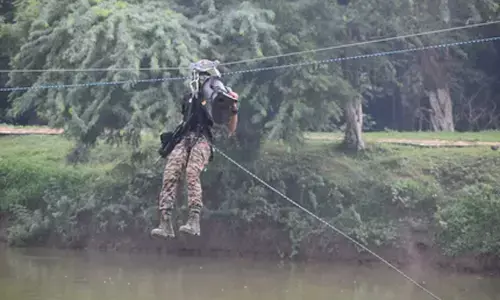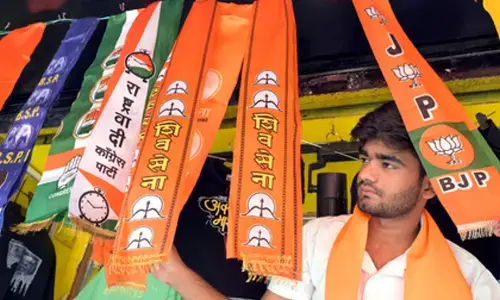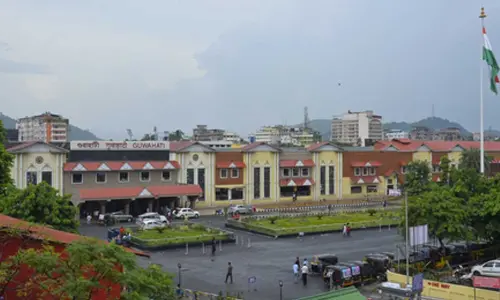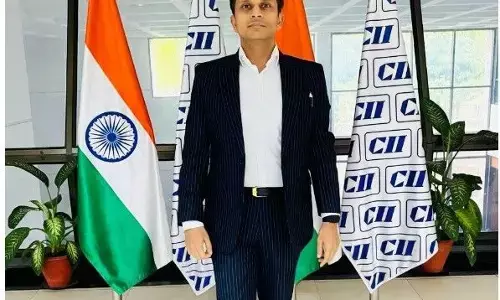Bifurcation mandate on Centre
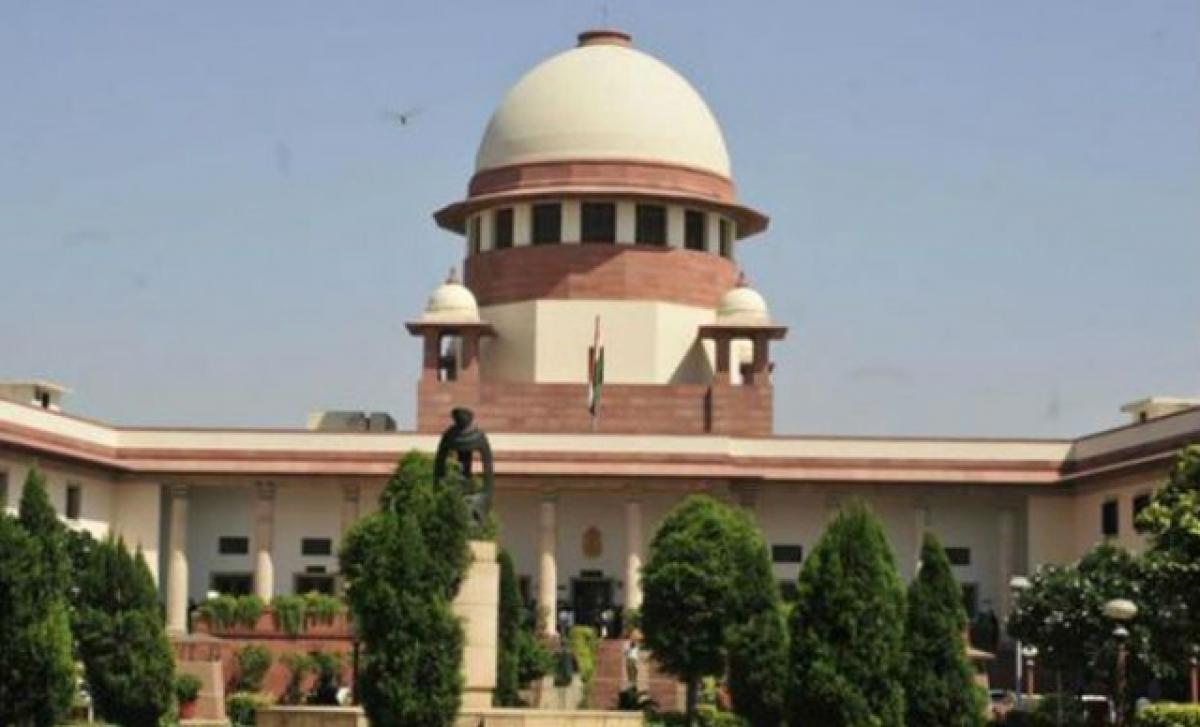
Bifurcation mandate on Centre. The Members of Parliament belonging to Andhra Pradesh and Telangana are bracing up for a showdown in Parliament to impress upon the Central government to fulfil the promises made to the two successor States at the time of bifurcation of the united Andhra Pradesh State. As per the Constitution of India, a State is bifurcated by an Act of Parliament.
Even a year after bifurcation, the two successor States of Andhra Pradesh and Telangana are facing a plethora of problems and disputes. The Re-organisation Act clearly mandates the Centre to extend financial help and also mediate in case of any dispute. It has to offer tax incentives to promote industrialisation, assist in division of resources and help set up facilities like the High Court. But the Centre has been silent on these. MPs from both the States should put pressure on it during the ongoing Monsoon Session to act forthwith. The Centre should come out with an action taken report on the status of implementation of the Andhra Pradesh Re-organisation Act
The Members of Parliament belonging to Andhra Pradesh and Telangana are bracing up for a showdown in Parliament to impress upon the Central government to fulfil the promises made to the two successor States at the time of bifurcation of the united Andhra Pradesh State. As per the Constitution of India, a State is bifurcated by an Act of Parliament.
.jpg)
Therefore, the Centre is solely responsible for resolving the issues that rock the two successor States as a legacy of bifurcation. The Centre is also expected to take supplemental, incidental and consequential measures at the time of bifurcation itself to facilitate the process. Any bifurcation is bound to result in several thorny issues cropping up.
The successor States can also end up in resource deficit due to the bifurcation. A united State shares resources and infrastructure. In the post-bifurcation period, it is obviously not possible to do so. The Centre is, therefore, obliged to respond to meet any such exigencies as emerge out of the bifurcation. The Centre cannot be oblivious to the concerns of the successor States.
It cannot remain a passive spectator when the two successor States confront each other over myriad things that may or may not necessasarily flow out of the process of bifurcation. At times, the Centre has to be an arbitrator or facilitator depending on the issue that comes to the fore. A year after the bifurcation, it is worth recalling what the State Reorganisation Act mandates the Central government to do in regard to the two States.
Besides there are promises made at the time of bifurcation that could not from part of the Act for varied reasons. A perusal of the Act itself tells us the commitments made by Parliament. Certain controversial issues like continuing denial of special status, failure to bifurcate the High Court more than a year after legislature and executive wings were divided etc. could attract reasonable attention.
But, there are also many mundane issues that need to be taken stock of. For instance, assistance of police forces from the Central government to successor States etc. The Act envisages many aspects in this regard. They include: The Central government shall assist the successor States of Andhra Pradesh and Telangana to raise additional police forces.
It shall, for a period of three years, on and from the appointed day, maintain and administer the Greyhound Training Centre in Hyderabad which shall function as a common training centre for the successor States and, at the expiry of the said period, the existing Greyhound Training Centre in Hyderabad shall become the training centre of the State of Telangana.
The Central Government shall assist the successor State of Andhra Pradesh to set up a similar state-of the-art training centre at such place as the State government of Andhra Pradesh may by order notify. The Central government shall provide financial assistance to the successor States in setting up new operational hubs for Greyhounds at such locations as the successor States may by order notify.
As a temporary measure, the Act envisages that the High Court of Judicature at Hyderabad to be common High Court till establishment of the High Court of Andhra Pradesh. Despite a categorical promise to set up a separate High Court for the state of Andhra Pradesh, there seems to be no significant headway in this regard.
It is rather surprising that MPs from Telangana had to storm Parliament to get this provision of the Reorganization Act implemented, that too one year after the bifurcation. As the Chief Minister himself pointed out in the state legislature, certain forces are reportedly blocking the process. The Center can no longer heed such forces.
The major concern of the residuary state of Andhra Pradesh was in regard to the revenue loss and revenue shortfall due to complexities emanating from the bifurcation of the State. Hyderabad being the State capital accounted for a lion’s share of the united State’s revenue. The residuary State therefore apprehended a massive loss to its revenue. The backward regions of the State were much more aggrieved over their development in the cash-starved residuary state.
Telangana also sought assistance from the Centre as it felt that the region suffered decades of neglect. Addressing these concerns, the Act makes specific provisions relating to distribution of revenue. The Section 46 of the act states as follows: “The award made by the Thirteenth Finance Commission to the existing State of Andhra Pradesh shall be apportioned between the successor States by the Central government on the basis of population ratio and other parameters.
Provided that on the appointed day, the President shall make a reference to the Fourteenth Finance Commission to take into account the resources available to the successor States and make separate awards for each of the successor States. The Central government may, having regard to the resources available to the successor State of Andhra Pradesh, make appropriate grants and also ensure that adequate benefits and incentives in the form of special development package are given to the backward areas of that State.
The Central government shall, while considering the special development package for the successor State of Andhra Pradesh, provide adequate incentives, in particular for Rayalaseema and north coastal regions of that State. But the Center wants these backward regions to contend with meager allocations.
The apportionment of the assets and liabilities of the existing State of Andhra Pradesh before bifurcation between the two successor States is a complex issue. Therefore, the Act makes specific provisions to ensure this happen in an amicable manner. The Act clearly states: “The apportionment of assets and liabilities shall be subject to such financial adjustment as may be necessary to secure just, reasonable and equitable apportionment of the assets and liabilities amongst the successor States.
Any dispute regarding the amount of financial assets and liabilities shall be settled through a mutual agreement, failing which, by order, by the Central Government on the advice of the Comptroller and Auditor-General of India. Thus the Act mandates the Centre to play a due role wherever any such differences persist. Such differences cropped up in several cases even leading to ugly spectacle at times.
The demand for separate State actually evolved on the concerns over jobs, financial resources, water resources. Any understanding of this fact would make us appreciate that post-bifurcation there would certainly be disputes between the successor States. Anticipating this possibility, the Act makes appropriate recommendations for continuance of arrangements in regard to generation and supply of electric power and supply of water.
If any disputes arise thereafter, the Central government is obliged to consult the successor States and thereby give directions. Both the States feel that the Centre’s response in such matters so far is far from satisfactory. The Centre seems to be shying away from discharging its constitutional responsibility given the political interests at stake for the ruling party at the Centre.
The Andhra Pradesh State Reorganization Act mandates the Centre to take necessary measures for progress and development of successor States. The Act clearly spells out the measures for both the States and also exclusively for the residuary State of Andhra Pradesh. They include: The Central government shall take appropriate fiscal measures, including offer of tax incentives, to the successor States, to promote industrialisation and economic growth in both the States.
It shall support the programmes for development of backward areas in the successor States, including expansion of physical and social infrastructure. It shall provide a special financial support for creation of essential facilities in the new capital of the successor State of Andhra Pradesh. Besides, the present central government should also implement the assurance given to Rajya Sabha by the then Prime Minister to accord a special category status to the residuary state of Andhra Pradesh.
The provisions of this Act prevail over any other laws. The Section 107 explicitly specifies this constitutional dimension, when it said: “The provisions of this Act shall have effect notwithstanding anything inconsistent therewith contained in any other law. “
The central government cannot, therefore, take any excuse for non-implementation of any provision of the Act .The time has come for the Centre to release an Action Taken Report (ATR) on the implementation of Andhra Pradesh State Reorganization Act. The MPs of both the States should demand this in the ongoing session of Parliament.









